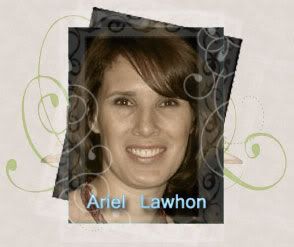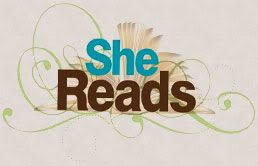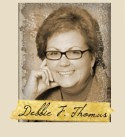
The morning after the 9/11 attacks on the World Trade Center, my husband, George broke an orange pitcher.
I came unhinged. I screamed things and threw things better left unsaid and unthrown. I tore at my hair. I wailed. I collapsed to the floor.
I over-reacted in grand style.
In my defense, I'll add that this was a vintage Bauer Pottery piece of a type I've seen listed for seventy-five to a hundred dollars. More than that, it was the pitcher I'd dropped ladybugs into for safekeeping when I was four. This pitcher was special.
Still, I'll bet you've already guessed that my meltdown had less to do with broken pieces of pottery and more to do with broken towers, broken lives, and a broken sense of security.

Weeks later, George walked in from the garage and presented me with the orange pitcher, now mended with an industrial epoxy resin he uses for auto body repair. Sound far-fetched? Take a look. I think you'll agree it's more beautiful and more meaningful than it ever was before, and for the first time ever, it's a one-of-a-kind, fresh and unique new creation. It now sits in my office as a reminder that my husband is a wonderful man, and that redemption happens, all the time.
Have you noticed? We are told, in Ephesians 5:16 to redeem the time. This time we're living in now. We're supposed to redeem it. To mend and re-name it, just as Jesus re-named Abraham and Sarah, and Peter and Paul, and you and me.
"For the days are evil," it says, and it does seem so. No matter where you live, you see and feel the uncertainty, the diminished hopes brought on by a global economic crisis.
If you're a writer, you've spent years struggling with the tension between a perceived pressure to write to the market, and a desire to write something fresh and unique. The truth is that the market loves fresh and unique things if they strike the right chord (you and your publisher get to guess what will do that), but if nothing strikes that chord, the market will settle for the familiar. Fewer and fewer publishers still in business are in a mood to guess, so more and more seem to settle for familiar names, familiar styles, familiar themes.
"Ha!" I hear you say. "Redeem that, if you can."
A few months ago, there was a big fire in a nearby town that destroyed several homes. Many homeowners were devastated, but one woman, I am told, felt an unexpected sense of freedom. It seemed that someone had dumped her entire box of blocks, and now she had an opportunity to put them back, but better, more thoughtfully this time.
Is it possible we have the same opportunity?
I was recently inspired by the article on the Harlem Renaissance, in
The Intellectual Devotional by David S. Kidder and Noah D. Oppenheim:
"Much of the foundation of the Harlem Renaissance was set by the African-American historian and social theorist W.E.B. DuBois (who) asserted a new sense of black cultural consciousness and pride, inspiring a generation of young writers and artists to create a distinctive African-American voice."
A distinctive voice, woven by many, among them Langston Hughes, who wrote his poems to the beat of jazz music.
Might it be time for a Christian Renaissance? I mean, don't those two words just fit together?
Do we have (can we find) a culture distinct from the wider society, something we can take pride in and nourish into something new? A distinctive Christian voice that we can cultivate, infuse with a music all our own?
Now that our blocks are dumped, can we take a few risks, experiment and play? Could we start a movement?
The impressionists did in the 1870's. They rejected the photo-realism of previous artists and painted reality with movement and light mixed in. Their paintings, they believed, were more realistic representations of what the eye actually sees.
The post-impressionists agreed, and they didn't like it. Where was the spirit? The emotion? These artists, my beloved Van Gogh among them, filled their paintings with meaning, with realities the eye can't see. (Can you imagine a world without
Starry Night?)
The modernist authors of the early part of the last century explored ways of depicting objective reality when recent thought had called into question the existence of objective reality.
The Inklings, CS Lewis and JRR Tolkien among them, sought ways of writing stories so infused with spiritual realities that readers might feel that they'd been touched through the veil by something - or someone - holy and transcendent.
Throughout history movements have been propelled by artists and authors in bad times with little to no hope of recognition, but with an insistence on new ways of creating that allowed them to say things that screamed to be said.
So much screams to be said right now. Of course, we may have to sort out what it is, in order to write it (or while we write it) but what higher calling?
And what better place to redeem than the desert? Didn't God say so himself?
"See, I am doing a new thing! Now it springs up; do you not perceive it? I am making a way in the wilderness and streams in the wasteland." Is. 43:19
If we started a new Christian Renaissance, how might it sound on the page? What might be different? If it were an art movement, what colors and what strokes?
What is our culture, anyway?
Do join in. We love to read what you have to say.











 We’ve been talking non-fiction/fiction this week. I’ve learned much from Katy and Debbie – and my TBR list has grown because of all the excellent recommendations from our readers. I read loads of non-fiction, quirky stuff from YA books explaining environmentalism, to books on writing, to biography (currently reading the biography of C.S. Lewis’s wife Joy Davidman Gresham), to info/reference volumes. I read very little Christian non-fiction. There are reasons for that, but I won’t go into it here. I do have a Christian non-fiction recommendation, though. When I was going through a disastrous time in my life (one of many), I found a slim book by M. Craig Barns called When God Interrupts. There’s a long story that goes with this book, but suffice it to say, it was sustaining. Now, on to today’s fiction/non-fiction topic.
We’ve been talking non-fiction/fiction this week. I’ve learned much from Katy and Debbie – and my TBR list has grown because of all the excellent recommendations from our readers. I read loads of non-fiction, quirky stuff from YA books explaining environmentalism, to books on writing, to biography (currently reading the biography of C.S. Lewis’s wife Joy Davidman Gresham), to info/reference volumes. I read very little Christian non-fiction. There are reasons for that, but I won’t go into it here. I do have a Christian non-fiction recommendation, though. When I was going through a disastrous time in my life (one of many), I found a slim book by M. Craig Barns called When God Interrupts. There’s a long story that goes with this book, but suffice it to say, it was sustaining. Now, on to today’s fiction/non-fiction topic.






























